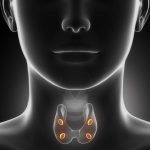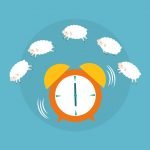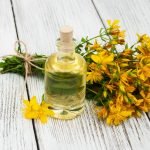Hey Ladies: “Let’s Talk About Sex”
There are as many varied meanings and purposes for sex, as there are individuals participating in it. It is the deepest, most sensual physical expression of love, it is the coming together of two separate individuals to explore a state of oneness through physical joining. It is the raunchy, sweaty, screaming, scratching orgasm, and the cigarette that follows. It is the makeup, the first time, the revenge, and the one-night stand. Sex is how we all ultimately came to be, the joining of an ova and sperm to create the zygote which would grow into a sexually active human being.
Sex Should Not be Painful
And yet, for millions of women pain during sexual intercourse is a common occurrence Estimates range from 8% to 33% of women suffer from dyspareunia, the medical term for painful sex. Most women never seek advice, help or support, simply gritting their teeth and missing out a wonderful and important aspect of their relationship, and life. If this is you, know that you are not alone. A recent survey1 of sexual attitudes and lifestyles on 6,669 sexually active women found that between the ages of 16-24 and 55-64 were most likely to have pain during sex. And those who said they sex hurt were four times less likely to enjoy sex, 5 times more likely to feel anxious during sex, and 3 times more likely to have difficulty climaxing.
The most common link to painful sex is vaginal dryness, which in most cases is likely to be caused by one of two things, depending on the age group.
Younger Ages
Sex can be pretty awkward at first. Many new lovers don’t know how to communicate to their partners what is working for them, and what isn’t. In younger age groups this can result in a lack of adequate arousal – or foreplay – necessary to lubricate the vagina. The reason it’s painful is that there’s not enough lubrication, leading to tugging and pulling of tissue – not exactly the desired feeling.The bottom line: If a woman’s not wet, she’s not ready. Talking with patients regarding the importance of communication and also adequate arousal or lubrication use before the initiation of penetration could be very beneficial. This communication is crucial to enjoyable lovemaking in many other ways and will undoubtedly help make sex a better experience.
The bottom line: If a woman’s not wet, she’s not ready. Talking with patients regarding the importance of communication and also adequate arousal or lubrication use before the initiation of penetration could be very beneficial. This communication is crucial to enjoyable lovemaking in many other ways and will undoubtedly help make sex a better experience.
Older Ages
In older women, hormones are often an underlying component to vaginal dryness, especially during menopausal years. This doesn’t have to mean that sex is painful, and a quick solution is to be prepared with lubrication, and apply often. If synthetic lubrication is an issue, coconut oil could be a wonderful lubricant to use during sexual play. Coconut oil will not stain sheets (or underwear) and is thin enough to not alter sensation as much as thicker oil may.
Of course, addressing hormonal balance is also crucial, and hormone replacement, HPA axis regulation, diet modification, herbal formulations could be considered.
Deeper Causes
In other cases, affecting all age groups, the cause may be a little less clear. Many women have histories of sexual, emotional, or physical trauma that pose serious and very real obstacles to the enjoyment of sex. Many women, though heterosexual, do not trust men, and homosexual women may have difficulty with vaginal intercourse from previous experiences with men. These can be very difficult obstacles to overcome in enjoying an activity, which relies on trust and vulnerability in many ways. Traumatic sexual experiences may have tainted the enjoyment of sex for some women, and these traumas may need to be addressed and processed in order to find comfort and pleasure in a sexual relationship. Talking about the difficulties in having sex, asking for support, seeking guidance and assistance from a sexual therapist, or close friends may help immensely, and should be openly addressed and advocated to the patient.
Source:
- Mitchell KR, Geary R, Mercer CH. Painful sex (dyspareunia) in women: prevalence and associated factors in a British population probability survey. BJOG. 2017; doi: 10.1111/1471-0528.14518.
 Node Smith, associate editor for NDNR, is a fifth year naturopathic medical student at NUNM, where he has been instrumental in maintaining a firm connection to the philosophy and heritage of naturopathic medicine amongst the next generation of docs. He helped found the first multi-generational experiential retreat, which brings elders, alumni, and students together for a weekend campout where naturopathic medicine and medical philosophy are experienced in nature. Three years ago he helped found the non-profit, Association for Naturopathic ReVitalization (ANR), for which he serves as the board chairman. ANR has a mission to inspire health practitioners to embody the naturopathic principles through experiential education. Node also has a firm belief that the next era of naturopathic medicine will see a resurgence of in-patient facilities which use fasting, earthing, hydrotherapy and homeopathy to bring people back from chronic diseases of modern living; he is involved in numerous conversations and projects to bring about this vision.
Node Smith, associate editor for NDNR, is a fifth year naturopathic medical student at NUNM, where he has been instrumental in maintaining a firm connection to the philosophy and heritage of naturopathic medicine amongst the next generation of docs. He helped found the first multi-generational experiential retreat, which brings elders, alumni, and students together for a weekend campout where naturopathic medicine and medical philosophy are experienced in nature. Three years ago he helped found the non-profit, Association for Naturopathic ReVitalization (ANR), for which he serves as the board chairman. ANR has a mission to inspire health practitioners to embody the naturopathic principles through experiential education. Node also has a firm belief that the next era of naturopathic medicine will see a resurgence of in-patient facilities which use fasting, earthing, hydrotherapy and homeopathy to bring people back from chronic diseases of modern living; he is involved in numerous conversations and projects to bring about this vision.










